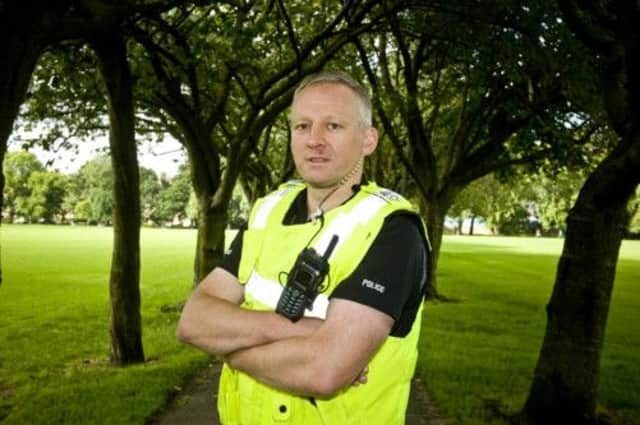Police: Axe corroboration to help 3,000 victims


Those cases, many of which involve sexual offences and solemn procedures, do not currently reach the courts because of a lack of corroboratory evidence, according to Police Scotland research.
Meanwhile, both the Association of Scottish Police Superintendents (Asps) and the Scottish Police Federation (SPF), who previously raised concerns, have now backed a change in the law.
Advertisement
Hide AdAdvertisement
Hide AdThe Scottish Government has proposed abolishing the requirement for two independent pieces of evidence to bring a case, following a recommendation by Lord Carloway, the Lord Justice Clerk, Scotland’s second most senior judge.
However, the move is opposed by the Law Society of Scotland, the Faculty of Advocates, all other senior judges, and many MSPs.
Assistant Chief Constable Malcolm Graham, giving evidence during a heated session of the Scottish Parliament’s justice committee, insisted the change was needed.
“This is an unfair barrier to justice for many victims,” he said. “The intention behind our support for abolishing the requirement would be that a large number of victims would get access to justice.”
He added: “We’ve done some research which demonstrates there would be a small increase in the number of cases we would report to the procurator-fiscal.
“That small change is disproportionately moved to more solemn procedures. A large number are serious sexual crimes.
“The increase would be around 2 per cent. That would represent 3,000 additional victims.”
He denied claims that abolishing the requirement for corroboration would stop police looking for it in less serious cases.
Advertisement
Hide AdAdvertisement
Hide AdJohn Finnie, an independent MSP and former police officer, said: “I don’t think you can give such assurances that minor breaches of the peace or minor assaults will be given the same level of energy, the same chasing of information.”
Mr Graham replied: “Whether it’s a minor offence or a serious one our approach will not change.”
While police estimate 2,927 more cases a year could go before the courts, they cannot estimate the number of convictions. MSPs fear acquittals could be even more damaging to victims.
Convener Christine Grahame MSP asked other witnesses whether they had any fears the law could backfire.
Lily Greenan, manager of Scottish Women’s Aid, said: “I don’t see how that situation could be worse or how you could get a worse conviction rate.”
Speaking outside the committee, Mr Graham agreed.
“It means more people will get into a courtroom where there’s the opportunity for the jury to consider the whole circumstances and I think that’s a positive thing,” he said.
Obtaining corroboration in sex offences can be difficult because of the private nature of the crime.
Also speaking outside the committee, David Ross, vice- chairman of the Scottish Police Federation, said he had received assurances that cases would not be brought on a single piece of evidence, such as a witness statement.
Advertisement
Hide AdAdvertisement
Hide Ad“It has become clearer we will still have corroboration across the whole of the evidence, but not on every individual strand,” he said.
“That’s from the cabinet secretary [for justice, Kenny Mac-Askill], the Lord Advocate and Solicitor General.”
He added: “It was a significant concern that evidence from one source would be sufficient – if corroboration was removed in its entirety. And that was a step too far.”